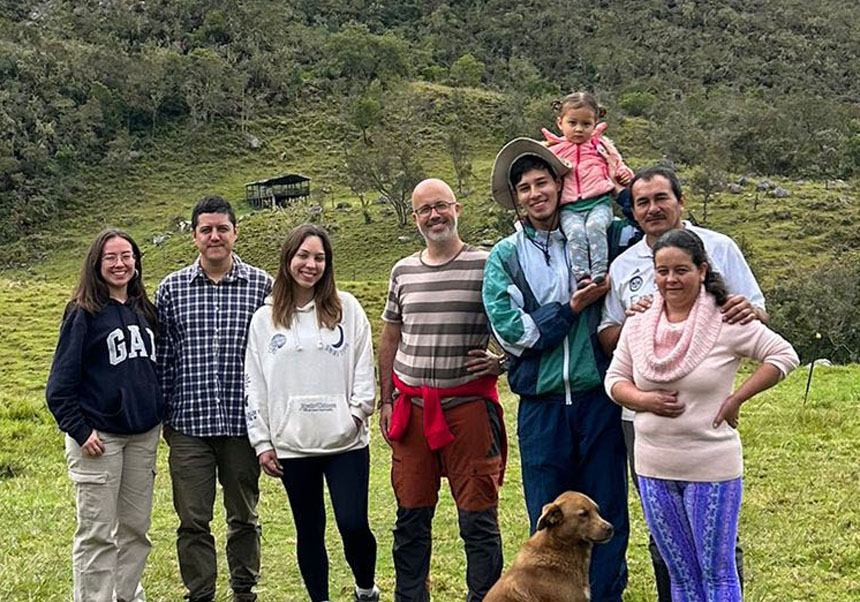A development cooperation project from the University of Valencia manages and publicises a natural park in Colombia
- Scientific Culture and Innovation Unit
- March 2nd, 2023

A Cooperation project of the University of Valencia (UV), “Ecotourism as a strategy for peace. Pilot project in the natural reserve of La Llanada”, aims to recover a natural park located in a conflicted and remote area of Colombia. The project has been organised and coordinated by Luis del Romero, professor of Geography at the Valencian academic institution.
The Cooperation project of the University of Valencia, born in the 6th call, has allowed the creation of a board of trustees formed by the owners of the natural park of La Llanada, where the Valencian centre is the scientific advisory body to manage and enhance the reserve. Also collaborating in the project are Sergio Otero, Valeria Idárraga and Maria José Díaz, students of the Degree in Environmental Sciences at the UV, of Colombian origin.
With this project, it has been possible to enhance the nature reserve with different actions, such as the correct management of the park through the board of trustees, the preparation of two integrated studies on fauna and flora, and on indigenous heritage, the creation of an ecotourism itinerary and the promotion of the park through social networks.
The nature reserve of La Llanada, located in the municipality of Concepción, is a very remote rural area of Andean forest that has hundreds of species of flora, especially bromeliads and orchids, and a very threatened fauna of big cats and birds of prey. The reserve has traditionally had many conflicts such as the construction of a transfer channel without permission from the town hall and poaching on the property.
“We were surprised by the enormous cultural and environmental richness of this area, and that it has very few specific publications and needs greater dissemination”, highlighted Professor Luis del Romero, who has participated and is an expert in projects on management and environmental conflicts, as well as territorial planning and depopulation. The project, in addition to giving greater legal security to this protected area, wants to promote ecotourism through an interpretive route with 13 panels that allows you to discover the enormous biodiversity of this forest. “With this project we want to contribute to economic diversification and consolidate the peace process in this area, especially punished during the worst years of the guerrilla”, explains Luis del Romero.
















